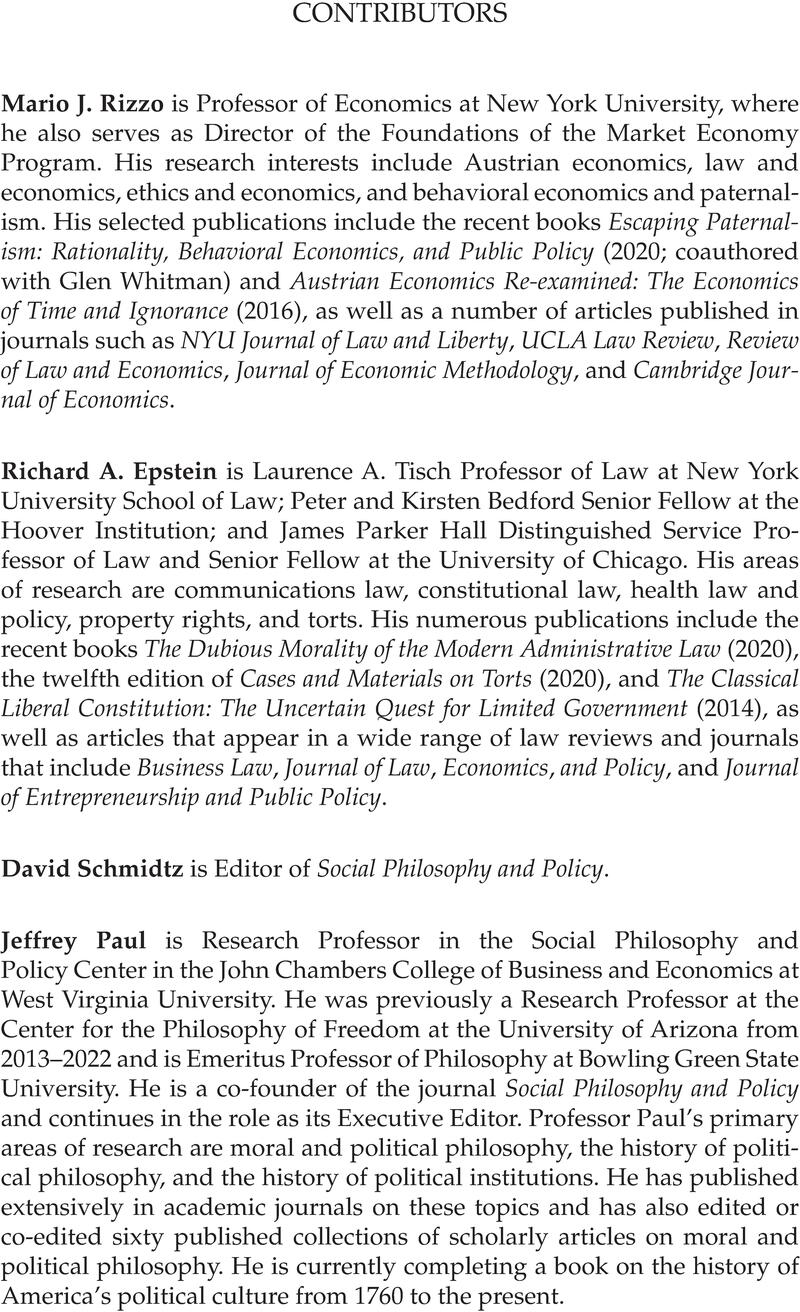No CrossRef data available.
Article contents
CONTRIBUTORS
Published online by Cambridge University Press: 14 August 2023
Abstract
An abstract is not available for this content so a preview has been provided. Please use the Get access link above for information on how to access this content.

- Type
- Contributors
- Information
- Copyright
- © 2023 Social Philosophy and Policy Foundation


